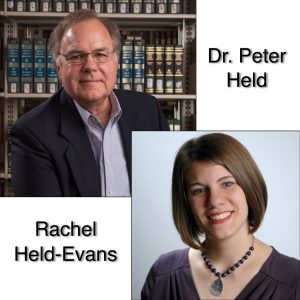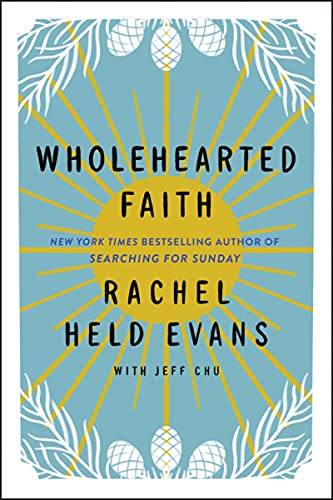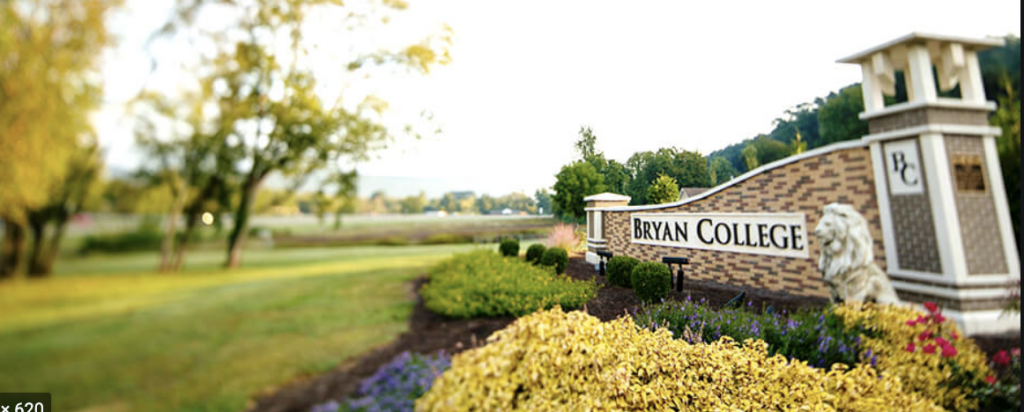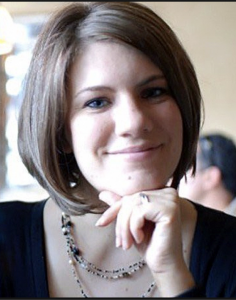

A touching series of essays in which Held Evans, with Chu’s invisible pen, explores how one might find a path forward in Christianity beyond conservative evangelicalism” -Eliza Griswold, The New Yorker
A touching series of essays in which Held Evans, with Chu’s invisible pen, explores how one might find a path forward in Christianity beyond conservative evangelicalism” -Eliza Griswold, The New Yorker
“Evans died at 37, but a beautiful new book captures her brave outlook. . . . I could not help but notice the poetry in Evans’s prose. . . . What readers will find in these pages was someone deeply human: funny, irreverent, curious, wise, forgiving, nonjudgmental.” –The Washington Post
A new collection of original writings by Rachel Held Evans, whose reflections on faith and life continue to encourage, challenge, and influence.
Rachel Held Evans is widely recognized for her theologically astute, profoundly honest, and beautifully personal books, which have guided, instructed, edified, and shaped Christians as they seek to live out a just and loving faith.
At the time of her tragic death in 2019, Rachel was working on a new book about wholeheartedness. With the help of her close friend and author Jeff Chu, that work-in-progress has been woven together with some of her other unpublished writings into a rich collection of essays that ask candid questions about the stories we’ve been told—and the stories we tell—about our faith, our selves, and our world.


by Ken Kemp – Posted: June 12, 2019
If you are wondering why all the buzz, why the passing of this daughter of an obscure Christian college professor has captured such global affection, triggered such massive grief, appeared in so many national headlines, read on.
I’ll try to explain.
Not everyone will appreciate the comparison – but as I took my daily walk under a blue sky, in the company of the surrounding mountains and the winding nature trail, with its birdlife and color, still lots of green and open blossoms hanging on as chilly spring mornings give way to a withering summer sun, I listened to Science Mike.1 On his podcast, he sang a song of gratitude and tenderness and endearment to his friend Rachel. I was moved by his tribute. Mike relayed his deeply personal response to the news of Rachel’s untimely death.
As I listened, it came to me: Rachel is Christianity’s contemporary Queen of Hearts. Hear me out.
If you are a reader (and I presume you are if you are reading this reflection), then you understand that authors become our friends. In reading an entire book, you spend some 15-20 hours or more listening, interacting with the ideas. You connect, not just intellectually, but viscerally, tuned in to the heart. There deep in the text, you discover secrets that only readers know. You are no longer alone, because the narrative unfolding page after page tells your story, too. It is stated in ways you wanted to express yourself, but you didn’t have the language, or maybe the courage to say it yourself.
For me, reading time is in the early morning. Generally, I don’t read a book until I’ve decided it’s worth the time. The ten or fifteen dollars for the E-book are not the issue. I ask first, does this book address issues I care about? Do I want to learn this? Is the author credible? Will it deepen my understanding of the world and my appreciation of it? Who recommended it? Will it help me become more self-aware? Will it help me in my own relationships? With my family? With my neighbors? With my world?
That’s my process. When I decide to read, the book has been vetted in this way. I read in the morning, usually, fairly early in fact. It’s the time of day I can give an hour or more to a focus on a page. It’s been a habit now for over a decade. It gets me up in the morning – like a start-of-day meeting with a valued friend.
I’ve read two of Rachel’s books – one of them twice. (I rarely re-read a book.) For all those hours, Rachel and I spent those early hours together over morning coffee. She became my friend. That led me to listen to interviews and speeches, too.
The first book I read was transformational. It sent me on a research journey. At the time, I was obsessed with the roots of my tribal evangelicalism. I like the original title much better than the re-release title that came later: Evolving in Monkey Town: How a Girl Who Knew All the Answers Learned to Ask the Questions.2 In that book, Rachel told me about her journey – as a good evangelical Christian girl who followed all the rules and learned all the verses. Her father (a contemporary of mine) is a graduate of the Dallas Theological Seminary (an evangelical Mecca). With his doctorate in higher education (from the University of Alabama), he landed a position on the faculty of Bryan College, named after the famous prosecuting attorney, William Jennings Bryan. He advanced the case against a high school teacher who taught evolution in what is popularly known as the “Scopes Monkey Trial.” The dramatic 1925 court case, which attracted as much national attention then as the O.J. Simpson trial did in more recent history, was a battle for the fundamentalist Bible. A Battle Royale. A media circus. It all happened right there in Dayton, Tennessee, home of Bryan College and Rachel Held Evans.
Rachel loved Jesus and her faith community and her privileged college life. But she had questions. She was a reader, too. She knew those secrets only readers know. Intuitively, she surmised that the evidence for the fundamentals of her evangelical faith that supposedly demanded a verdict fell somewhat short of credulity. So, she raised her hand in class, challenging the assumptions of her professors. Young earth creation? Inerrancy? Infallibility? A talking snake? Three days in the belly of a big fish? The Nile River turned to blood? The earth stood still? Really?
That led to more questions: conservative Republican politics? Anti-feminism? American dominionism? Racial indifference? Patriarchy? Gender hierarchy? Really?
I am a late bloomer. Going public with my own questions had been suppressed for most of my life. But here is Rachel, the quintessential evangelical Christian girl, raised in fundamentalism’s heartland with a professor of a father who spent his life seeking the answers to all those knotty questions swirling around Biblical Worldview, unsettled. Unconvinced. Writing a memoir documenting her intellectual and spiritual odyssey. I hung on every word.
That book cracked whatever glass ceiling might have kept her under the radar. Her popularity soared, as did her public quest. As the cottage industry, now known as “Exvangelicalism,” grew, she became a powerful, leading spokesperson for “deconstruction.”
Rachel rejected literalism; but not the Bible. She jettisoned a blind allegiance to the laundry list of propositions that define evangelicalism but embraced the enduring power of the Eucharist. The Apostle’s Creed became an anchor – not because it represented the theory of everything but because it spells redemption. She despised a contrived exclusivism and embraced a universal, welcoming inclusivism. It was no longer about heaven and hell, but about relationship. Grace. Mercy. Peace. Hope. Reconciliation.
Carry Newcomer has a song that captures Rachel’s quest.
Too long we have wandered, burdened and undone,
But, there is room at the table for everyone.
Let us sing the new world in, this is how it all begins,
There is room at the table for everyone.
So, Rachel Held Evans became a friend to those who felt snubbed by that smug version of religion that builds walls and locks doors to keep “them” out. She recognized the systems that deny opportunity and a place at the table. She addressed issues of race and sexuality and gender and equal opportunity and civil rights and the political policy issues that favor the privileged at the expense of the marginalized. And deep down, she had to confess. After all that, it was Jesus who taught her to live this way.
Her books, her speeches, her interviews, her life modeled something for which the world longs. It is an essential goodness that disarms. It challenges the assumptions of those who claim some sort of divine right to privilege; some sort of manifest destiny that tramples over the weak.
When the news came that Rachel’s life was extinguished by a bizarre sequence of a devastating freight train of deadly events, I was stunned. A sister was taken from me.
But not just me. I am not alone. Like me, tens of thousands of others have sat with Rachel and a cup of coffee for extended periods with an open book, tracking her journey as though it is our own.
The shock of her passing reminded me of our unlikely week in London, the week after Diana’s tragic accident. Carolyn and I wandered through the city, surrounded by flower bouquets and candles and hand-written notes and posters, all for the Queen of Hearts.
Lady Di found herself as a young girl caught up in all the pageantry of British royalty, in a marriage imposed on her. She had hard questions as the infidelity of her husband emerged as real and incontrovertible. In time, the tensions loomed large and ultimately, unbearable. She made her break. Some cheered. Others condemned.
Just as Diana appeared to find her voice and her place in the world, her light went out in a Parisian tunnel late one Saturday night. The world grieved. At the last possible minute, Queen Elizabeth acquiesced, reluctantly acknowledging that her estranged daughter-in-law had indeed captured the hearts of the British people. Westminster Abbey, on the Queen’s orders, filled to capacity, calling the entire world together in mourning – and in the hope of a world more like Diana’s. Elton John reworked his classic tune; Diana had lived her life “like a candle in the wind.”
Rachel is our Lady Di. She broke free from the bonds of religious tribalism. She opened doors. She welcomed the world. She affirmed. She wept. She laughed. She wrote. She invited. She cared. She believed. She became our own brand of servant-royalty.
The Memorial Service held in her name confirmed it all. The patriarchal mold was broken. We heard from strong women – strong women clergy. We sang the old hymns. We celebrated the Eucharist, and all were welcomed at the table.
Rachel Held Evans is our Queen of Hearts.
1Science Mike, one of “The Liturgists,” has a podcast of his own. He dedicated an entire episode to Rachel’s memory. His heartfelt tribute was a narrative that in my mind, was a poem. A song.
2When the book was released in a new edition, they changed the title to: Faith Unraveled.